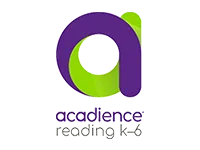
Ohio DOE-Approved Solutions for Student Success
Grounded in the Science of Reading. Proven in Classrooms.
Voyager Sopris Learning® supports Ohio educators with evidence-based reading solutions that improve student outcomes. Our programs are designed around the science of reading and meet the diverse needs of learners across the state. With a strong track record of results and a commitment to educational excellence, our approved solutions are ready to help educator leaders meet Ohio's literacy goals.
Struggling Readers in Ohio: What Can Be Done?
Ohio literacy expert Michelle Elia unpacks the state’s reading challenges and shares what works.
In this insightful blog post, Michelle Elia, an experienced educator and Ohio Literacy Lead, shares a firsthand perspective about the barriers struggling readers face—and how educators can overcome them.
Products
Reading Solutions
The REWARDS® suite is a powerful, research-validated program for adolescent students who struggle reading long, multisyllabic words and comprehending content-area text. With explicit, teacher-led instruction, REWARDS gives students the tools to improve fluency and comprehension to become successful readers.
The journey to literacy requires essential tools to ensure students who struggle can reach grade level. Updated Voyager Passport® is a K–5 literacy intervention that provides comprehensive, explicit, and systemic instruction in the five essential components of reading and includes language and writing—in just 30 minutes of instruction per day.
This blended program applies the Structured Literacy approach recommended by the IDA and provides explicit, systematic, and cumulative foundational reading skill instruction. The program emphasizes higher-level comprehension as students progress and develop speed, accuracy, and automaticity while reading more complex text.
Sound Partners is a research-based, supplementary tutoring program that provides individual instruction in phonics-based early reading skills. Through explicit instruction, engaging 30-minute lesson activities, and storybook reading practice, students work to improve alphabetic, phonemic awareness, decoding, word identification, and spelling skills.
Assessment Solutions
Acadience Reading literacy assessment provides brief, formative indicators of the essential skills necessary for proficient reading in grades K–6. Easy and efficient to administer, score, and interpret.
Real Results. Real Educators.
"REWARDS really helps students build fluency, comprehension, and writing skills all within the same product. We've seen great gains at our school since using this product."
– Jodi M
"LANGUAGE! Live gives very targeted instruction and students make effective and efficient growth in a short time."
– Catrina H
"I like how engaging and motivating Voyager Passport is for my students. The program has really helped my students improve."
– Ashley T
Find the Right Literacy Solution for Your Students
Let us help you meet Ohio’s literacy goals with programs that are state-approved and classroom-proven.




